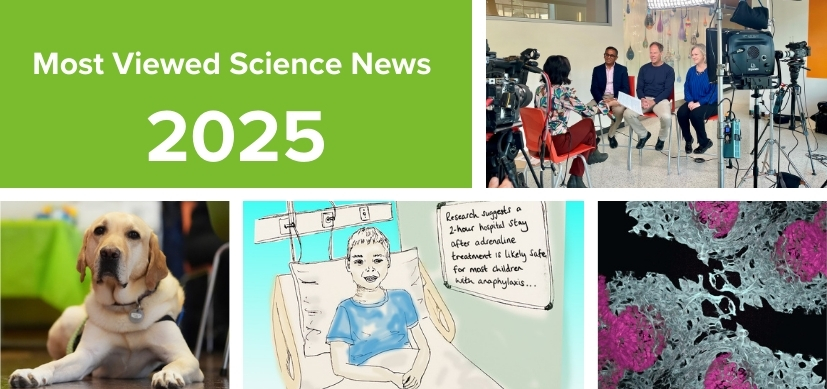GEMINI Study: Whole Genome Sequencing Most Effective for Diagnosing Genetic Disorders in Newborns and Infants
Post Date: July 11, 2023 | Publish Date: July 11, 2023

Cincinnati Children’s provided the most participants for this 400-patient comparison of genetic testing methods led by researchers at Tufts and Brown universities
Sometimes targeted diagnostic tests can be too targeted.
Children’s hospitals across the nation devote many of their most sophisticated skills and technologies toward resolving medical mysteries that involve newborns and infants with rare genetic disorders. While any given condition may be exceedingly uncommon, large pediatric centers encounter families living through this experience every day.
Now, a study published July 11, 2023, in JAMA reports that commonly used targeted genetic testing misses diagnoses more frequently than using broad testing of the whole genetic code from the beginning of the search for a diagnosis.
“More than half of the babies in our study had a genetic disorder that would have remained undetected at most hospitals across the country if not for genome sequencing technologies,” says Jonathan Davis, MD, chief of Newborn Medicine at Tufts Medical Center and co-principal investigator of the study.
The study compared a rapid test that can detect variants in more than 1,700 genes associated with rare disorders to whole genome sequencing (WGS), which identifies variants in all 20,000 genes in the human body. The multicenter effort involved testing 400 newborns and infants with a wide variety of undiagnosed conditions.
Using WGS, researchers found known genetic disorders in 49% of the patients. But the narrower test detected disorders in only 27% of the cases.
Can diagnostic odysseys be reduced?
Cincinnati Children’s was a large source of participating patients for the study. Jae Kim, MD, PhD, co-director of the Perinatal Institute and Division Director of Neonatology at Cincinnati Children’s was a co-author.
Additional team members involved in the research included Daniel Swarr, MD, Division of Neonatology; Loren Pena, MD, PhD, Division of Human Genetics; Nicole Weaver, MD, co-director, Cardiovascular Genetics Clinic; Farrah Jackson, MS, CCRP, Human Genetics research coordinator; and former neonatology faculty members Kristen Suhrie, MD and Brenda Poindexter, MD, MS.
Read Associated Press feature: A broad genetic test saved one newborn’s life. Research suggests it could help millions of others
Currently, pediatric specialists follow a wide range of practices when ordering tests to diagnose unusual, complex conditions. While genetic tests that target subsets of known genetic variants can be quicker and less costly to run, the result can be a diagnostic odyssey for patients and families as specialists request one narrowly focused test after another.
“The importance of this study was adding prospective data that evaluated the benefits of whole-genome testing in neonates against traditional sequential testing,” Kim says. “Whole genome sequencing has rapidly emerging as standard of care for newborn genetic testing and this paper is helping to accelerate this change.”
WGS testing already helping families
In one case, a care team using WGS testing helped diagnose Kabuki syndrome within the first two weeks after the child was born, when the average time to an accurate diagnosis is about 5 years. In other cases, teams have made earlier diagnoses of factor XIII deficiency, retinoblastoma, and malignant hyperthermia thanks to WGS testing, Kim says.
Looking forward, Kim predicts more newborns with suspected genetic disorders will be offered whole genome testing at earlier time points in their care.
About the study
The research was led by investigators at Tufts and Brown universities. Other participating centers included Rady Children’s Hospital in San Diego, Mt. Sinai Hospital, University of North Carolina-Chapel Hill, and the University of Pittsburgh.
Read the news release from Tufts
| Original title: | Rapid Whole-Genomic Sequencing and a Targeted Neonatal Gene Panel in Infants With a Suspected Genetic Disorder |
| Published in: | JAMA |
| Publish date: | July 11, 2023 |






